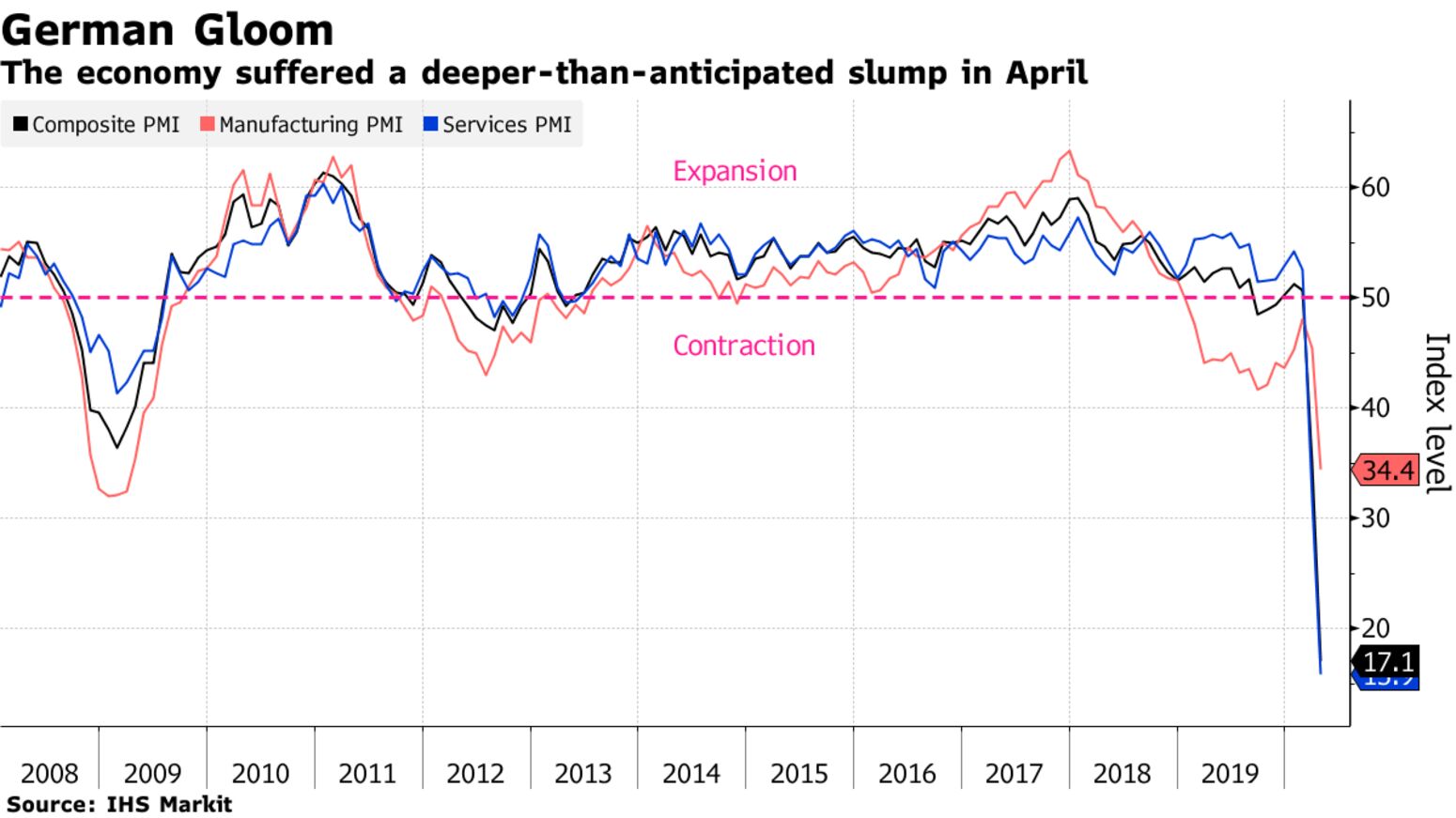The German economy suffered a deeper-than-anticipated slump at the start of the second quarter as coronavirus-related restrictions led to a collapse in demand. IHS Markit’s monthly Purchasing Managers’ Index plunged to 17.1 in April from 35 in March, the lowest since the series began 22 years ago. The reading, far lower than the 28.5 forecast by economists, compares with a mark of 50 that divides expansion from contraction.

The results echo those of other surveys suggesting Europe, and the global economy, are headed for a sharp recession because of government clampdowns on movement and business. A measure of activity in France also dropped to a record low in April. The German PMI showed new business fell the most in the history of the series, with the decline led by services. That reflects the particular hit to the leisure industry, airlines, restaurants and hotels.
IHS Markit economist Phil Smith said the report “paints a shocking picture of the pandemic’s impact on businesses.” There was a record drop in employment, even as many companies reduced employees’ hours to avoid job cuts where possible. With demand in freefall, companies also cut prices at the fastest pace in more than a decade.
